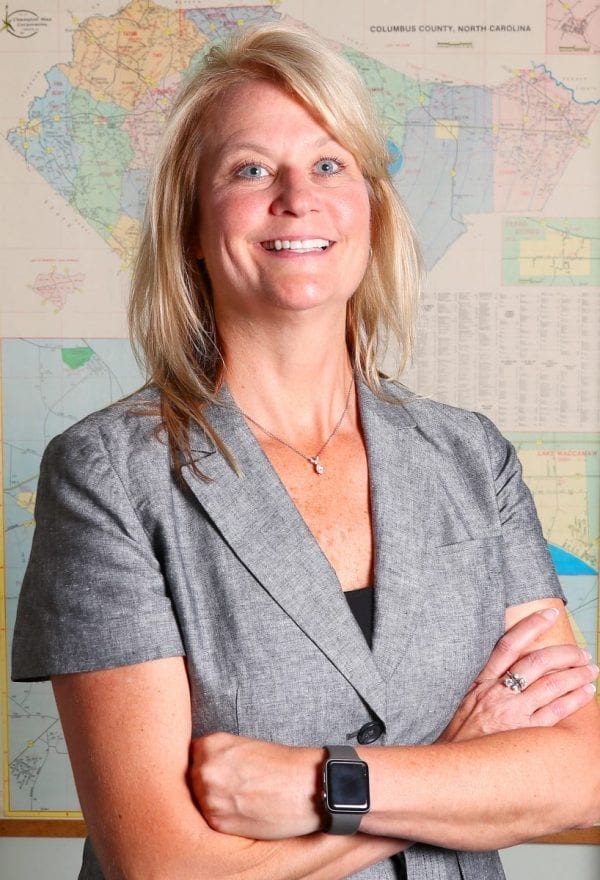Deanne Meadows, Superintendent
deannemeadows@columbus.k12.nc.us
910-642-5168 x 24049
Happy Back to School!!
We are very excited to see students return on the 28th.
Each June, after the last student has graduated and the buses roll for the final time, the task for those of us in education is to reflect on our efforts during the previous school year and determine what should be our focus in the upcoming school year.
Near the end of 22-23, we gave surveys to students and parents enquiring about their experience with the district, schools, and teachers. Over 1,700 students took the survey and close to 1,000 parents responded. Looking at the data, we saw many positives. But we also saw a strong need to engage more students in the classroom and more parents in our schools.
I spent two days over the summer with every principal, assistant principal, and instructional leader in the district. We had meaningful discussions about the importance of engagement. We determined that increasing engagement with all stakeholders will be a primary focus during the upcoming school year. The focus on engagement will start with the classroom, where teachers will be given tools to ensure that students are not just passively learning, but are actively learning the material through dynamic lessons that are rigorous and interesting to students. This process began last year with the full implementation of blended learning, but we have plans to increase the interest levels and curricular alignment across all classes. Our goal is to have every student interested in school and grow as learners. We don’t plan to stop our quest to improve engagement until every student wakes up every morning looking forward to the school day.
We will make efforts to engage parents and caretakers as well; one important step that we have taken to help parents more easily engage with schools is to change the structure of some of our teacher workday/conference days. On October 13th and February 16th, schools will close so that teachers can hold conferences from 12 PM-7PM. We want to make it easier for parents to come to our schools, and we want them to feel connected and welcomed. We want them to understand what their child is learning and help support our schools by having discussions and asking questions of their child.. Our goal is to also have more opportunities for parents to visit the school and engage with staff.
Ultimately, our job is to empower students to responsibly engage in learning, maximize their potential, and become prepared for success. The world is changing so fast. The recent developments in areas of Artificial Intelligence show us that we are preparing students for a world where success may look very different than it does today. Many of the skills of the past generation may no longer be in demand five or ten years from now. The only skills that will never go out of style are those that are used during rigorous, engaging classroom activities- the ability to think flexibly, creatively, and critically, and the ability to cooperate and communicate. We believe those skills to be “future-proof”, and our students can only master them by being engaged in the learning process. We hope that you, as stakeholders, will further engage with our district and schools as we work together to maximize the potential of every student every day.
Please feel free to reach out to me with any questions or concerns. This is going to be a great school year!
Dr. Deanne Meadows




